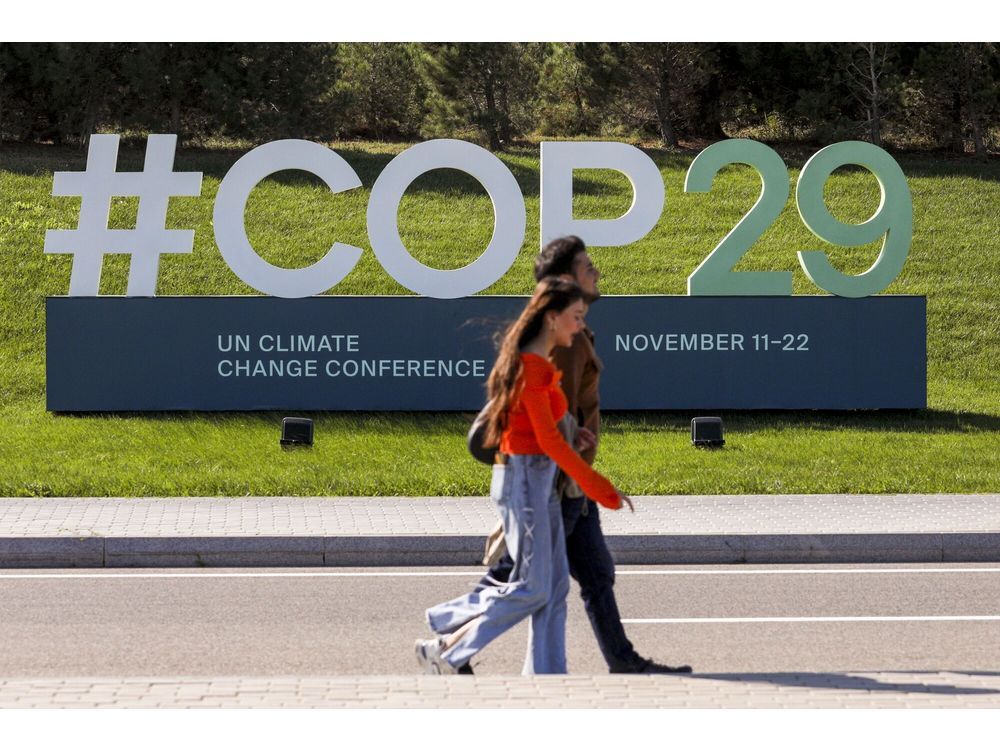
Article content
(Bloomberg) — President Joe Biden will not attend a major UN climate change summit opening just days after the US election and set to shape the country’s approach to the issue for years to come.
Biden’s absence at the high-level COP29 negotiations was confirmed by a person familiar with the matter who wasn’t authorized to speak publicly. Instead, the US delegation will be headed by John Podesta, the senior presidential adviser for international climate policy. Other top federal government officials who will be in Baku, Azerbaijan, according to a State Department listing, include Agriculture Secretary Tom Vilsack, Energy Secretary Jennifer Granholm and Ali Zaidi, the national climate adviser.
Article content
US presidents aren’t mainstays at the annual UN summits, but Biden used appearances at the 2021 and 2022 sessions to assert the country was resuming its leadership in a global fight against climate change largely ceded during former President Donald Trump’s first term in the White House. National leaders sometimes also make virtual and videotaped remarks, even if they forgo in-person attendance.
This year, the US election could cast a long shadow over the talks in Baku, where nearly 200 countries are set to hash out how much public financing developed countries should steer toward helping vulnerable nations counter climate change. It’s a key issue because of the trillions of dollars experts say are necessary to help developing countries meet climate targets. And Trump, the Republican nominee, has vowed to once again withdraw from the Paris Agreement.
This will be the second time Biden is skipping the annual climate talks; Vice President Kamala Harris attended last year’s summit in Dubai in his place. The event partially coincides with another high-level gathering; the Group of 20 nations leader summit is taking place Nov. 18 and 19 in Rio de Janeiro, Brazil.
An existing climate finance commitment — for $100 billion annually — runs through 2025, but negotiators are looking to chart pledges that could run through the next decade, and officials from the US and other developed nations are hoping to expand the pool of contributing countries so it includes China.
—With assistance from Josh Wingrove.
Share this article in your social network